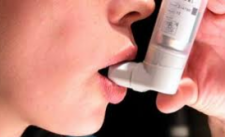 A new study published online in the journal Annals of Allergy, Asthma, and Immunology raises some interesting questions about whether very young children who receive antibiotics develop asthma more frequently than those who do not.
A new study published online in the journal Annals of Allergy, Asthma, and Immunology raises some interesting questions about whether very young children who receive antibiotics develop asthma more frequently than those who do not.
The retrospective study, which was conducted by Dr. Kenneth D. Mandl and colleagues at the Harvard Medical School examined data from insurance claims of more than 60 thousand children over an eight year period beginning in 1999. The study was designed to determine whether children who were given any antibiotic prior to age 1 developed any of three subtypes of asthma.
Indeed, children who were treated with antibiotics before age one were twice as likely to have transient wheezing, and 1.6 times more likely to develop persistent asthma. Furthermore, there was a dose response; children who received more courses of antibiotics were more likely to develop asthma than those who received fewer courses.
There are a number of ways to interpret these findings, including the hygiene hypothesis a theory which asserts that a reduction of exposure to antigens early in life leads to an overly responsive immune response later on, leading to an increased risk of various allergies (the rise in peanut allergies being a prime example).
A similar explanation was noted by Dr. Martha Hartz of the Mayo Clinic in Minnesota: "This was largely an urban population, but children in rural areas tend to have less risk of asthma, perhaps because they are exposed to a wider range of pathogens, such as the endotoxin from animal stool.
Another explanation, says ACSH s Dr. josh Bloom, is that antibiotics were given more often to children who already were predisposed to compromised lung function because they developed more infections that needed to be treated. In other words, it could be the other way around.
ACSH s Dr. Gil Ross notes, While these findings are interesting, they should not change any guidelines. If a child has an infection that requires treatment with antibiotics they should be given. And antibiotics should not be given to a child (or anyone, really) unless they are needed. Although not always followed, these are the best practices for all patients right now.
ACSH s Dr. Gil Ross notes, While these findings are interesting, they should not change any guidelines. If a child has an infection that requires treatment with antibiotics they should be given. And antibiotics should not be given to a child (or anyone, really) unless they are needed. Although not always followed, these are the best practices for all patients right now.


